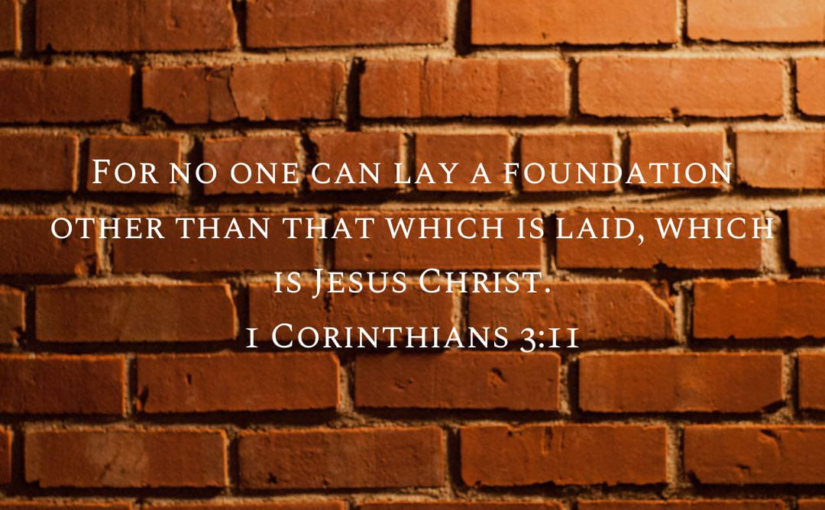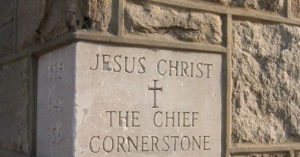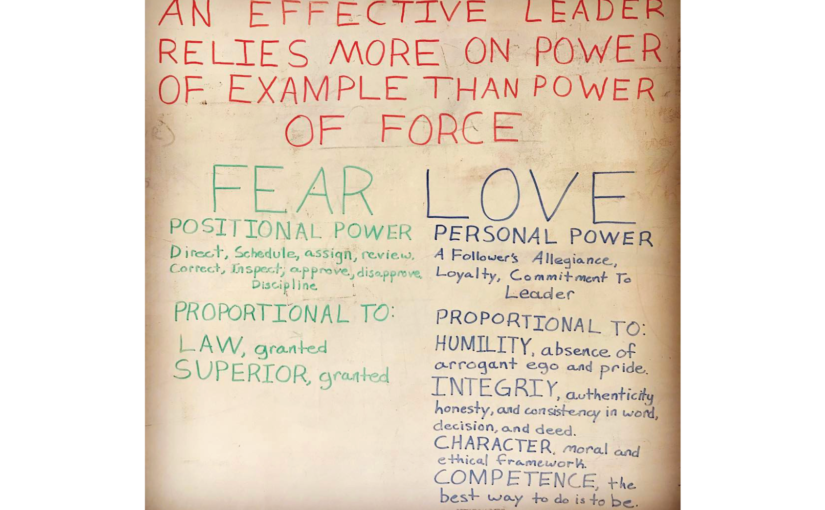
Today’s Reading: I Corinthians 11
From the beginnings of religion and the church, there have been barriers to our worship. This is not a happenstance, but a deliberate intention and assault on us from the enemy. When we read in the beginning of the Bible, the foundation of Eden and the Jewish faith and tradition established through Moses, the foundation of worship has been shaken continuously. When we have come together to uplift God, the enemy is constantly there to minimize the full effect of the worship. The reason that the enemy cannot tolerate the worship is because it gives us strength to fight him. Worship creates the relationship between us and God. This relationship then allows God to work in us and helps us turn away from our human nature. This allows the Spirit to overcome the flesh which is our human nature.
Human nature is the fundamental pieces of our being that we have that drive us as biological beings: food, procreation, security, play,and social status. The drive for these fundamentals can be beneficial or detrimental depending on the individuals. The drive for competition can be beneficial when we are trying to engage ourselves to be better and strive for excellence, but it can also be detrimental when we hurt others in the process. Human nature can be divisive. It will begin to create differences in the same group. It tries to make one better than the other. It will create rifts in families and communities. This is another weapon that the enemy uses. It will take the good things of God and try to create confusion between each other. When we start to find differences instead of focusing on the similarities, we are not able to worship together. This is what Paul is speaking about in this chapter of Corinthians.
I Corinthians 11: 8-12 (The Message)
This is basically the origin of these customs we have of women wearing head coverings in worship, while men take their hats off. By these symbolic acts, men and women, who far too often butt heads with each other, submit their “heads” to the Head: God.
10-12 Don’t, by the way, read too much into the differences here between men and women. Neither man nor woman can go it alone or claim priority. Man was created first, as a beautiful shining reflection of God—that is true. But the head on a woman’s body clearly outshines in beauty the head of her “head,” her husband. The first woman came from man, true—but ever since then, every man comes from a woman! And since virtually everything comes from God anyway, let’s quit going through these “who’s first” routines.
Throughout my life and studies, I believed this passage in Corinthians was a passage only showing us about Christ and the church as their example of the unity of marriage. I had always seen this chapter as a way of showing the relationship between a husband and a wife. As I have meditated on this chapter, the Spirit has revealed a new paradigm shift. In Corinth, there was different practices between the Greeks and the Jews. In Greek culture, the women would not cover their heads in worship. In Jewish culture, the mandate from the old law was that women had to cover their heads. This is not a passage to show authority over one or another. But this is a passage to show how our human nature tries to divide us from worshiping one together.
There was division in the new church and foundation in Corinth, specifically on the clothing and covering the worshipers. The people were not really focused on the MAIN THING: Worshiping God. They were distracted from the purpose of the church and more on what each other was wearing. Does this sound familiar? They were allowing their human nature to outshine their worship. This is a major perspective shift for me because now I see this chapter in a different light. I hope that this challenge allows you to see this passage in a different light as well. This is not a declaration on submission to each other in marriage, but this is an observation in which we can worship God in spite of our differences in cultures, and song, and praise. This is what Paul is trying to convey is that we can worship without the restraints that each other puts on the other.
I Corinthians 11: 20-22
20-22 And then I find that you bring your divisions to worship—you come together, and instead of eating the Lord’s Supper, you bring in a lot of food from the outside and make pigs of yourselves. Some are left out, and go home hungry. Others have to be carried out, too drunk to walk. I can’t believe it! Don’t you have your own homes to eat and drink in? Why would you stoop to desecrating God’s church? Why would you actually shame God’s poor? I never would have believed you would stoop to this. And I’m not going to stand by and say nothing.
The paradigm shift continues as how do we worship with the Lord supper. As a young boy, I always thought that the Lord supper was really short and questioned where the remainder of the food? This is the mindset of kids, when you say “Supper” you’re thinking of a big supper per se Thanksgiving dinner. But the Lord’s supper is to remember the union that we have formed in Christ after the meal of the Passover. The use of the word “Supper” is actually more in accordance with Merriam-Webster’s definition: Supper is used especially when the meal is an informal one eaten at home, while dinner tends to be the term chosen when the meal is more formal. In some dialects and especially in British English, supper can also refer to a light meal or snack that is eaten late in the evening. The Lord’s Supper is taking the meal to the next level. When we partake in the Lord’s Supper we are participating in an act of worship.
We have already been fed our main meal, but Jesus is the fulfillment of our needs. This is to be done to remember his sacrifice. Paul writes in this section that the Corinthians where have lavish parties for the Lord supper. They were forgetting the essence of the Eucharist meal. The instant that they were not acknowledging the full scale of the sacrifice, they were committing the death of Christ again with the same brutality of the death of Christ over and over. This makes us take a moment to see how we worship. Are we continuing to give God the glory for the sacrifice? Or are we continuing to kill Jesus again on the cross? Is this for his resurrection? Or is this for our gain?
What are our barriers to worship? I have battled for my worship over the last several years. I continue to press forward in my worship through song, dance, meditation, blogging, and reading. I still get bombarded by the enemy, but my praise and worship continues. God will give me some resolve each day. How are you doing in your worship? What barriers are being placed in your life that are trying to prevent your worship? God knows all these things, but you have to ask him to help you push through these barriers.
Be Blessed



 But, what I think the enemy is always trying to distract us from is the fact that we each have our own unique giftings, and while we can absolutely always grow and develop in other areas, we each do have certain areas in which we were created to shine.
But, what I think the enemy is always trying to distract us from is the fact that we each have our own unique giftings, and while we can absolutely always grow and develop in other areas, we each do have certain areas in which we were created to shine.
 Today’s Reading:
Today’s Reading: 

